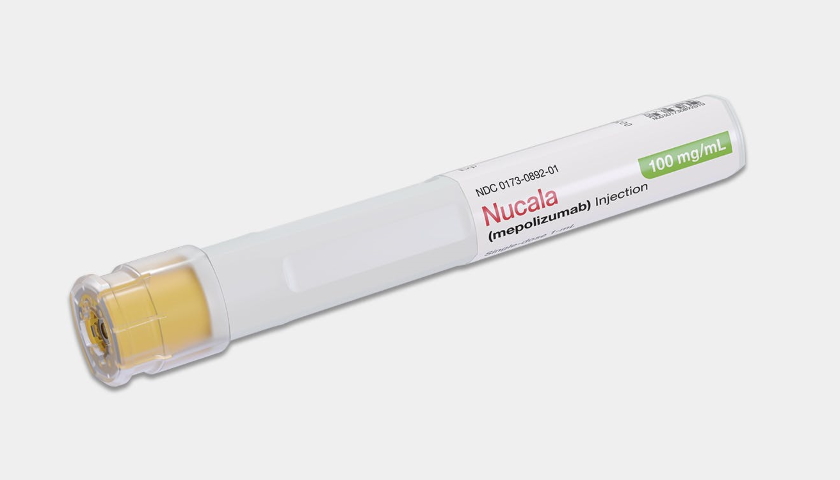EU clears GSK’s asthma drug Nucala in patient-friendly format

With competition heating up in the severe asthma category, GlaxoSmithKline has a new EU approval that it hopes will keep its Nucala drug ahead of its rivals.
The European Commission has approved two new delivery formats for Nucala (mepolizumab) – a pre-filled pen injector and a pre-filled safety syringe – that will allow patients with eosinophilic asthma to self-administer the drug at home.
GSK says Nucala is the only drug in the new interleukin-5 inhibitor class to be approved in Europe in a once-monthly, self-administered format, adding that studies show 96% of patients prefer self-dosing at home over clinic visits. The new versions were approved in the US in June.
Nucala was the first IL-5 inhibitor to be approved for eosinophilic asthma in 2015, making rapid headway in this severe form of the respiratory disease, but has since been joined on the market by AstraZeneca’s Fasenra (benralizumab) and Teva’s Cinqair/Cinqaero (reslizumab).
It’s still out in front in sales terms among asthma biologics, according to GSK chief executive Emma Walmsley, who said on the company’s second-quarter results call that it is “well placed” to maintain its lead given encouraging early signs for the “introduction of self-administration in the US.”
Nucala made £347m in the first six months of the year, an increase of 42% that came from the continuing rollout of the drug in markets round the world as well as the initial contribution of the new dosing formats.
The new IL-5 inhibitors are nipping away at Nucala, however, with AZ’s Fasenra in particular showing phenomenal growth – up 244% to $296m in the first half – which the company says made it the preferred new biologic for severe asthma during the period, despite being third to launch. That is being put down to its eight-week dosing schedule, while Nucala is given once a month.
Meanwhile, AZ is also expecting its own self-administration approval in the US and Europe in the second half of this year, so GSK’s current advantage could be short-lived. The first European launches of the new administration options are expected to take place in this month.
Teva hasn’t reported its second-quarter results yet, and didn’t report sales for Cinqair in the first quarter. It’s thought to be a long way behind its rivals, mainly because its drug has to be delivered by intravenous infusion while Nucala and Fasenra are given subcutaneously.
A failed phase 3 trial for Teva’s subcutaneous formulation last year has made it even less likely to be a challenge to the market leaders anytime soon.
It hasn’t all been good news for Nucala of late, however, as the FDA rejected GSK’s attempt to extend the drug’s label to include chronic obstructive pulmonary disease (COPD) last year. Fasenra also failed a late-stage trial in that indication.












